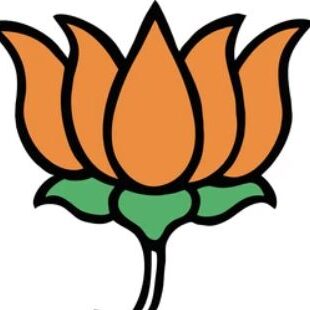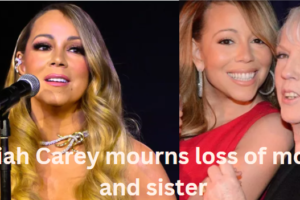
Iranian President Ebrahim Raisi was killed in a helicopter crash in a remote mountainous area near the border with Azerbaijan. The crash occurred in the northwest region of Iran, and Raisi’s body was identified early on Monday by rescuers who had initiated the search the previous afternoon.
Raisi, a hardline religious conservative, had been considered a potential successor to Supreme Leader Ayatollah Ali Khamenei. Elected as president in 2021, Raisi had implemented stricter morality laws, led a crackdown on antigovernmental protests, and taken a firm stance in negotiations with world powers over international oversight of Tehran’s nuclear program.
Supreme Leader Ali Khamenei, who holds ultimate authority in Iran, has sought to reassure the nation that state affairs will continue without disruption. The urgency to replace the government’s leadership is significant, as Iran faces heightened tensions in the Middle East.
The ongoing conflict in Gaza has escalated lower-level confrontations with Iran-backed groups like Hezbollah in Lebanon and the Houthis in Yemen. Just last month, Iran and Israel exchanged direct strikes.
All about Ebrahim Raisi
Ebrahim Raisi is an influential Iranian politician and cleric, currently serving as the President of Iran. Here are key details about his background, career, and political influence:
Early Life and Education
Full Name: Seyyed Ebrahim Raisol-Sadati
Ebrahim Raisi, born on December 14, 1960, in Mashhad, northeastern Iran, was deeply rooted in the Islamic clerical tradition from a young age. His father, a cleric of moderate rank, prioritized Raisi’s religious education, enrolling him in a traditional Islamic seminary after just six years of primary schooling. This early immersion marked the beginning of Raisi’s enduring connection with Iran’s clerical establishment.
Education: Raisi studied at the Qom Seminary, one of the most prestigious religious institutions in Iran. He was mentored by prominent clerics, including Ayatollah Mohammad Beheshti and Ayatollah Ali Khamenei.
Judicial Career
Early Career: Raisi began his career in the judiciary at a young age, becoming a prosecutor in Karaj and Hamedan provinces in the early 1980s.
The 1979 Iranian Revolution, which ousted Shah Mohammad Reza Pahlavi and established the Islamic Republic, was a pivotal event for Ebrahim Raisi. At the age of 18, Raisi aligned himself with Ayatollah Ruhollah Khomeini’s fundamentalists, who would soon exert control over Iran’s political and judicial landscape. His dedication and fervor for the revolutionary cause quickly caught attention. By 1981, at just 21 years old, Raisi had embarked on his judicial career, serving as the prosecutor for the Karaj and Hamadan provinces.
1988 Executions: He was involved in the mass executions of political prisoners in 1988, a controversial period that remains a significant part of his legacy.
Ebrahim Raisi’s most infamous period began in the late 1980s. Following the Iran-Iraq War, Supreme Leader Ayatollah Khomeini issued a fatwa mandating the execution of political prisoners associated with the People’s Mojahedin Organisation of Iran (MEK). This event, known as the 1988 Massacre, led to the formation of death commissions across Iran to expedite these executions.
Raisi was appointed to one such commission in Tehran. These “death panels,” as they were grimly referred to, comprised a small group of individuals who decided the fates of prisoners through brief interrogations. The questions typically centered on the prisoners’ political and religious beliefs, with their responses determining whether they would live or die. Estimates suggest that around 5,000 prisoners were executed during this period, though some sources claim the number could be as high as 30,000.
Deputy Chief Justice: In 2004, he was appointed as the First Deputy Chief Justice of Iran, a position he held until 2014.
Attorney General: From 2014 to 2016, Raisi served as Iran’s Attorney General.
Chief Justice: In 2019, he was appointed as the Chief Justice of Iran, a role in which he emphasized combating corruption within the judiciary and government.
Political Career
Presidential Elections:
2017: Raisi ran for president in 2017 but was defeated by the incumbent, Hassan Rouhani.
2021: He ran again and won the presidency with a significant majority, taking office on August 5, 2021.
Raisi’s rise to the presidency marked a significant consolidation of hardline control in Iran. By August 2021, hardliners held all major power positions, from the Supreme Leader to the Parliament and the IRGC. This consolidation signaled a bleak outlook for reformists and moderates within the country.
The regime’s increasing dependence on force to maintain control became evident through the severe crackdowns on protests in 2017, 2019, and beyond. Under Raisi’s influence, the government appeared to believe that the only effective way to suppress dissent was through unrelenting brutality.
Support Base: Raisi is supported by hardline factions within Iran, including the Islamic Revolutionary Guard Corps (IRGC) and conservative clerics. He is seen as a protégé of Supreme Leader Ayatollah Ali Khamenei.
Presidency
Domestic Policy: Raisi has focused on economic issues, particularly addressing inflation and unemployment. His administration faces challenges related to U.S. sanctions and economic mismanagement.
Human Rights Record: Raisi’s tenure is marked by criticism from international human rights organizations due to his involvement in past human rights abuses and his role in the judiciary, where crackdowns on dissent and freedom of expression have been prevalent.
Foreign Policy: His foreign policy aligns closely with the principles of the Islamic Republic, emphasizing resistance to Western influence and fostering closer ties with neighboring countries and allies like Russia and China. He supports the continuation of Iran’s nuclear program while advocating for the lifting of U.S. sanctions.
Personal Life
Family: Raisi is married to Jamileh Alamolhoda, an academic and the daughter of a prominent cleric. They have two daughters.
Influence and Legacy
Future Prospects: Given his close ties with the Supreme Leader, Raisi is often considered a potential successor to Ayatollah Khamenei.
Public Perception: While he has a strong base of support among conservatives and hardliners, he is also a polarizing figure due to his judicial past and human rights record.
Ebrahim Raisi’s rise to the presidency marks a significant moment in Iranian politics, reflecting the country’s ongoing struggles between conservative and reformist forces. His leadership continues to shape Iran’s domestic and international policies in profound ways.
Iranian President Ebrahim Raisi`s death has left a vacuum and he needs to be replaced immediately .. Supreme Leader Ali Khamenei will soon get his replacement and announce the same










